Search Results for: LiTter training
When Bunny Won’t Use The Litterbox – 10 Useful Tips to Improve Litterbox Habits
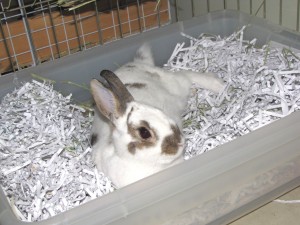 One reason often given when people surrender their rabbits to a shelter is that their bunny has poor litterbox habits. Who hasn’t wondered why their bunny eliminated right next to its litterbox instead of inside it? It can be a vexing problem for many bunny parents – but it’s not unsolvable. There’s hope even for the messiest bunny!
One reason often given when people surrender their rabbits to a shelter is that their bunny has poor litterbox habits. Who hasn’t wondered why their bunny eliminated right next to its litterbox instead of inside it? It can be a vexing problem for many bunny parents – but it’s not unsolvable. There’s hope even for the messiest bunny!
Here are some common reasons why bunny might not use the litterbox properly and how to remedy the situation:
1. New surroundings – Often when bringing a new bunny home, bunny will mark its new territory with droppings and/or urine, even when a litterbox is available. This instinctive territorial marking will usually cease after the first week or two, especially if you do not clean up immediately. If a new bunny is being brought home to an existing house bunny, expect each bunny’s litterbox habits to regress for a while. Any room(s) shared by unbonded bunnies in turn will also likely be subjected to territorial marking. This should not be confused with poor litterbox habits.
2. Young bunnies – Baby buns under 6 months or so often have poor litterbox habits. It is well-known that spaying and neutering rabbits helps tremendously with establishing good litterbox habits. Be patient with your young bunny, and fix your bunny as soon as it’s old enough (around 4-6 months).
3. Wrong litter – A litterbox filled with the wrong type of litter may bother some bunnies. Most bunnies like wood stove pellets (without chemical propellants) and this is your cheapest litter option besides simple, shredded newspaper. Yesterdays News and Feline Pine can also be tried if bunny dislikes the regular wood stove pellets found at the hardware store in economical 40lb bags. Some rabbits even prefer NO litter at all in their litterbox! Experiment with different kinds, but avoid cedar & pine wood shavings and crystalline cat litters, which may endanger bunny’s health.
4. Wrong size – Some persnickety smaller rabbits don’t like jumping up too high into their litterboxes; try a shallower one. Another trick is to adjust the level of litter inside the litterbox to see if bunny prefers a more or less full one. Some large rabbits may feel cramped in a too small litterbox and require a bigger one. A too tall or too shallow litterbox may also be the reason why bunny is not using his litterbox, so experiment with different plastic box sizes and heights until your bunny is happy. I recommend buying Rubbermaid or Sterilite clear, plastic, shallow under-the-bed bins at Target or Walmart when on sale!
5. Too clean/too dirty – Strange as it may seem, some bunnies don’t like their litterboxes spotless! After cleaning, these buns may eliminate next to the litterbox instead of inside it. For such bunnies, try tossing a few old droppings into the fresh litterbox or place a small scoop of soiled litter on top of the clean litter. Still other bunnies won’t use a litterbox that is too soiled – smelly and dirty! More frequent litterbox changes, with a white vinegar rinse in between to remove stains before adding fresh litter, is the answer for these bunnies.
6. Not enough boxes – A common complaint is that cage-free house bunnies eliminate or mark in every room, especially when there are multiple bunnies or other animals visiting/living in the home. Placing several litterboxes around the home – perhaps even in one corner of each room bunny has access to – may help encourage bunny to eliminate in a litterbox instead of on your floor, carpet, or furniture.
7. Too much space to roam – When litterbox training your rabbit, start with a small, confined space or room containing a litterbox. Let bunny demonstrate s/he can reliably use the litterbox in this smaller space, before gradually expanding his/her roaming space, one room or hallway at a time. If bunny relapses, start the process over again, restricting the roaming space until good litterbox habits are reestablished, before slowly enlarging the roaming area again.
8. Digging – Some rabbits just enjoy digging litter out of their litterbox. This is often seen in female rabbits, who have a strong burrowing/nesting instinct. First, try changing the kind of litter. If this doesn’t work, try placing a second plastic “digging box” filled with either shredded paper, dirt, sand or small pebbles into the rabbit’s habitat. An unused bathtub can also make a good “digging area” for bunny when filled with a small box of sand, dirt or paper – or even snow in the wintertime! Or perhaps consider allowing your bunny some supervised outdoor “digging time” in a safe, secure, walled- or fenced-in area, away from predators.
9. Prefers another spot – Placed litterboxes all around and bunny still prefers to eliminate somewhere else? Move the litterbox to bunny’s preferred spot. It’s much easier to accommodate a determined bunny than to retrain one to use the litterbox in another location you prefer. This is when giving in to bunny makes sense!
10. Unknown reason – If all else fails, I recommend trying this which worked well for one of my own litterbox-averse bunnies: Build a feeding station just beyond the litterbox requiring bunny to stand inside the litterbox while eating, drinking and chewing hay. This can be easily and inexpensively done by using a small, empty shoebox in a corner of the room or cage, onto which the ceramic food & water bowls are placed. Push the litterbox right up against the shoebox and push the other litterbox edge against the wall. Place hay either inside the litterbox or just beyond it in a small box next to the food & water. Bunny will get used to standing in his litterbox while eating and drinking, which is often when elimination occurs. This will rapidly improve bunny’s litterbox habits!
Most rabbits will learn fairly quickly and easily to use a litterbox since they are by nature very clean animals. If yours doesn’t for some reason, these ten tips should soon help bunny to reliably use the litterbox. Remember, always be patient with your bunny while working on litterbox habits, and consider giving positive reinforcements in the form of fruit or veggie treats when bunny is successful. NEVER strike nor shout at bunny when accidents occur outside the litterbox – this is counterproductive and harmful to your rabbit. If your bunny’s litterbox habits should suddenly deteriorate without good reason (such as the presence of a new bunny or animal in the house, etc), please consider a rabbit-savvy vet visit to rule out a possible illness. Now, go clean out bunny’s litterbox!
Written By: The Bunderful Iris – Guest Blogger
Is A Rabbit The Right Pet For You?
Contrary to popular belief, rabbits do not make good ‘starter pets’, should not be a child’s responsibility and are actually quite intelligent animals who require a specialized diet, housing and care.
These are a few of the main points you should consider prior to adding a rabbit to your household…
Trust Building Can Take A While: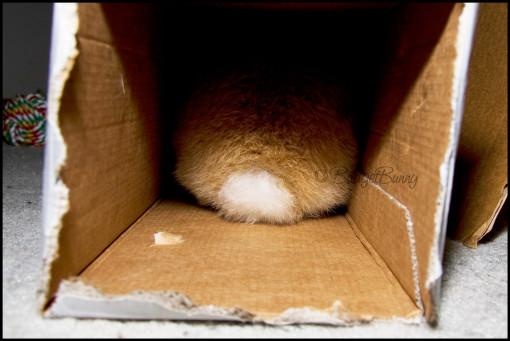
Rabbits are prey animals and by instinct are more cautious. It is natural for them to be nervous about you and their new surroundings. It isn’t that they don’t want your companionship but for most rabbits it will take a while for them to open up and fully trust you. Patience is vital during these stages.
Vet Bills Are Costlier:
Rabbits are considered an exotic animal. They have complex digestive systems, a very sensitive heart and a delicate bone structure. They require specialized care that only a qualified vet can provide. Most exotic vets will charge a higher exam rate because they are dealing with an exotic animal and have gone through the necessary schooling to become specialized in this area.
You Need Proper Housing And Somewhere To Put That Housing:
Rabbits require a larger amount of space then any pet shop cage can provide. Rabbits are extremely active animals and should not be housed in anything smaller than an ex-pen which provides approximately 16 sq. feet of floor space. Your rabbit needs to be able to hop at least three times in their cage without hitting anything and be able to stand up on their hind legs. Additional levels are recommended as they add extra floor space and keep those back legs nice and strong! Rabbits also require a minimum of 3+ hours of floor time per day. Building your own rabbit condo is an affordable way to provide your rabbit with the required space it needs. You can find out more about this here.
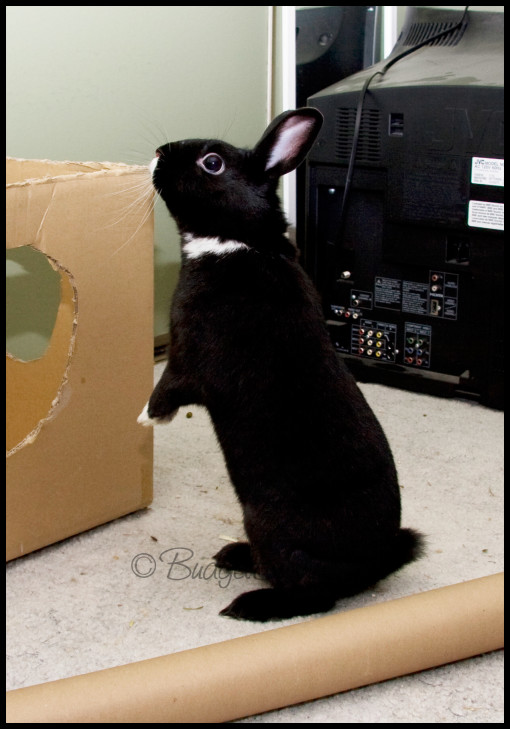 Rabbits Are Natural Chewers And Diggers:
Rabbits Are Natural Chewers And Diggers:
Without diligent bunny proofing, rabbits can wreck havoc on your house. Wires, carpet and baseboards are bunny favourites! Not only is this frustrating for you but it can be incredibly dangerous for your rabbit. Cords and baseboards need to be blocked off and carpet covered before letting your rabbit come out for play time.
Rabbits Don’t Like To Be Picked Up:
Another common misconception is that rabbits make excellent children’s pets and are perfect for snuggling! Rabbits actually have incredibly delicate bone structures and can be easily injured if they are handled too roughly. Being prey animals, they prefer their feet on the ground and interactions should be done on their level.
Need A Minimum Of 3+ Hours Of Daily Exercise:
As mentioned above, rabbits are incredibly active animals. Rabbits love to run, do bunny 500’s and binky! In the wild they would cover an incredible distance on a daily basis foraging for food. If your rabbit isn’t given enough time out of it’s pen then it has no outlet to exert it’s energy. This can lead to a variety of health problems and a very stressed out grumpy bun that takes it’s frustrations out on you!
Time Consuming:
Bunny proofing, setting up and disassembling floor time, feeding and daily cage cleanings all take time. On top of that you will want to spend as much time as you can bonding with your rabbit. If you have an extremely busy schedule and cannot devote this time to your pet, then a rabbit may not be for you!
Hay And Veggies Can Be A Costly Expense: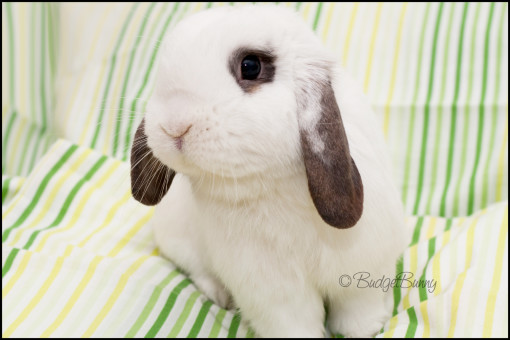
Hay purchased at the pet store is incredibly costly and your rabbit needs unlimited amounts available at all times. Depending on the type of harvest and weather we’ve had may also impact the price of hay in your area. Rabbits should also be given 1-2 cups of vegetables daily which can get quite costly especially when you’re purchasing in the off season.
Rabbits Are A 10 Year Commitment:
With proper care, rabbits live for approximately 8-10 years but we are also hearing more and more of bunnies reaching 12+ years of age! So where will you be in 10 years? Are you planning on going away to college or still trying to find your dream job? Do you love to travel? This lifespan is the commitment of a large dog not a hamster. Of course this is great if you are looking for a long term pet that can be an established part of your family.
Rabbits Should Be Spayed/Neutered:
Around 4-6 months of age your rabbit’s hormones will develop and dictate your rabbit’s actions towards you. This can provide a very unpleasant experience for you and your rabbit and is also one of the leading reasons so many end up in shelters. There are a lot of reasons to spay/neuter your rabbit. Find out more about that here.
Rabbits Are Incredibly Social: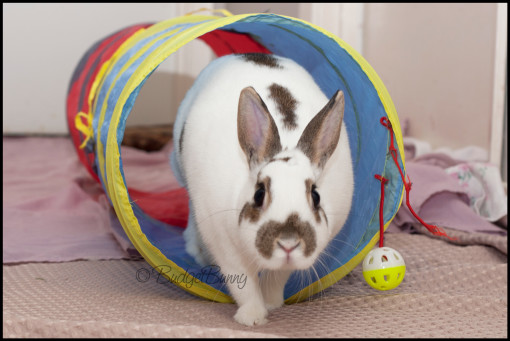
Rabbits are incredibly social, loving animals that crave companionship. If you are at school, work or just gone from the house for a large part of the day then you should consider getting a second rabbit. Rabbits are incredibly territorial however and need to both be spayed/neutered before being introduced on neutral ground. You also need to keep in mind that rabbits have their own unique personalities and no matter how hard you try, they may not get along. In this instance you will also need to have the space to house and care for two rabbits separately.
Not Suitable For Young Children:
As previously mentioned, rabbits are extremely delicate animals with sensitive bone structures. Mishandling can easily lead to injury. Rabbits do not like to be picked up and can not take a lot of abuse. Their specialized diet and care requires the dedication of an adult not a young child. This is not to say that a rabbit can’t be a loving and wonderful family pet, however a parent needs to accept primary responsibility for the pet and always supervise while children are around. If you’re looking for something for your child to hold and squeeze a large dog is more suitable.
May Require Annual Vaccines And Will Need An Annual Health Checkup: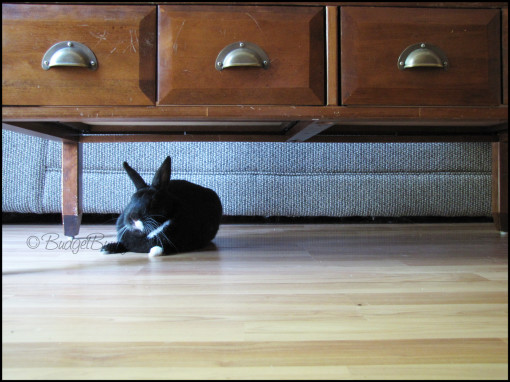
Depending on where you live, your rabbit may be required to have annual vaccinations. These protect against deadly diseases such as myxomatosis and VHD. In North America these are not required, however annual checkups are recommended to make sure your rabbit’s are in good health.
If at this point you’re still interested in adding one of these adorable animals to your life then you’ll be happy to read the following…
Less Time Consuming Than Other Animals:
Compared to a puppy, rabbits are a low maintenance pet. They can be left for longer periods of time, you don’t have to walk them outdoors and they can live happily in your home no matter the size. This is great for people living in apartments where space is an issue. It also means you don’t have to go down eleven floors to take your pet outdoors every time they have to use the washroom! When you are going to be away you can leave your rabbit at home and have someone come in daily to spend time with it instead of paying expensive boarding fees.
Once Tame, Rabbits Are Very Loving, Wonderful Animals: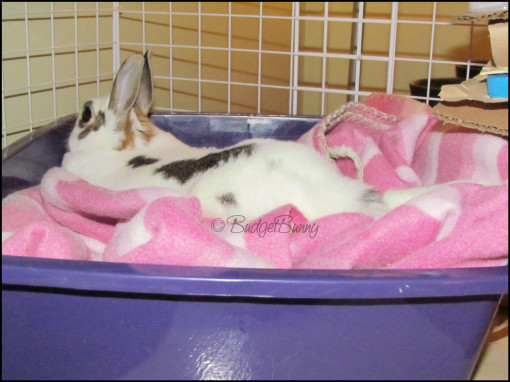
Rabbits are incredibly social and loving. They love interacting with you and seeking your attention. If you have followed us for some time and have watched our various YouTube videos, you will have seen how sweet these animals are.
Very Entertaining:
The binkies, hops, flops and bunny 500s rabbits love to do is guaranteed to bring a smile to your face! Watching your rabbit pick up and toss their toys or run around excitedly when given a favourite treat is just too adorable not to enjoy!
Rabbits Are Quiet:
Rabbits don’t vocalize their feelings like a dog or cat which makes them a great addition! If you are looking for a quiet pet to add to your family or live in an apartment, a smaller space or joined housing then why not consider a rabbit?
They Don’t Require You To Walk Them:
When there’s six feet of snow on the side walk, I still have to take my dogs for a walk. The weather outside does not affect a house rabbit. As long as you are providing them with the necessary daily floor time you are not required to participate (although it’s always more fun if you do!).
Rabbits Can Be Litter Trained: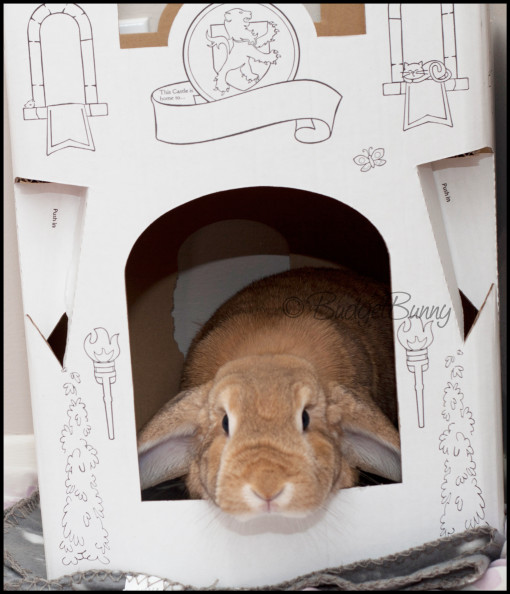
Much like a cat, once spayed/neutered a rabbit can form excellent litter box habits! Many owners choose to have their rabbits free range around their rabbit proofed home because of this! Rabbits are also fastidious groomers and are very clean animals.
Most Active At Dawn And Dusk:
Rabbits are crepuscular which means they are most active in the early morning and evening. This is perfect for the majority of people who work or go to school during the day. Your rabbit will do most of it’s relaxing while you’re away and be ready to play when you’re home!
Rabbits Don’t Have A Natural Odour:
Unlike rodents and ferrets, rabbits don’t have a natural odour. If you are noticing a smell then you are not changing their bedding or cleaning their litter box enough. Also remember that rabbits who aren’t spayed/neutered will also have smellier urine/faeces as they are trying to mark their territory with their droppings.
Rabbits Come In All Different Sizes, Colours And Breeds:
Floppy ears, erect ears, solid, speckled, banded, white, black, brown, grey, long haired, short haired, large or small, the possibilities are endless when it comes to choosing the right rabbit for you!
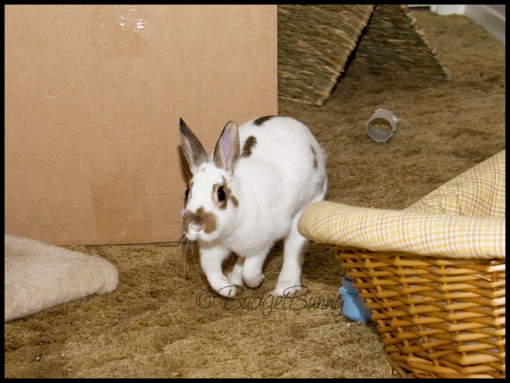 Rabbit Droppings Make Great Fertilizer:
Rabbit Droppings Make Great Fertilizer:
Rabbit droppings are nutrient rich in nitrogen, phosphorus and potassium as well as a variety of other vitamins and minerals. Rabbits poop a lot! Now you have a place to put it!
Can Be Trained:
Rabbits are incredibly intelligent and many easily take to clicker training just like a cat or dog. Many people teach their rabbits a variety of fun tricks! This provides an exciting way to bond with your bunny!
We at BudgetBunny think rabbits make great and loving pets however doing your research first is key! As rabbits are prey animals they can’t be expected to act in the same manner as a dog or cat. It is essential that you go at their pace and be incredibly patient with them as they become a part of your family. Once you have established that bond with your rabbit you will have one incredible companion to share your life with!
Don’t forget, you can learn more about this topic and others by visiting our YouTube channel BudgetBunny!

